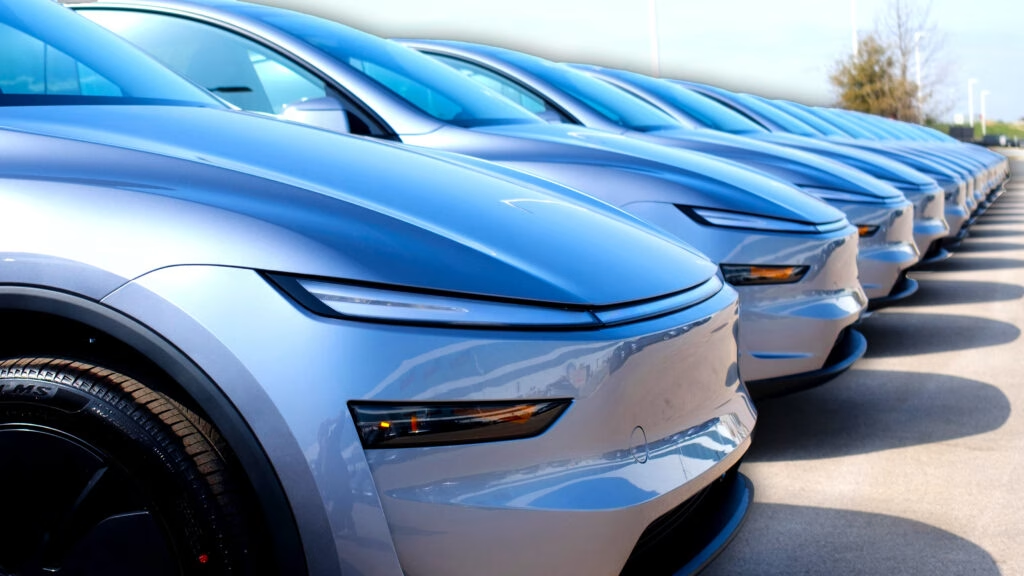Why Are So Many Teslas Suddenly Filling Up Signal Hill’s Streets?
Residents of Signal Hill, California, have been waking up to a strange new reality: their already tight street parking is now jammed with rows of Teslas, most sporting paper tags. For a city where finding a spot can already feel like winning the lottery, this sudden influx is more than just a minor inconvenience. It’s left many scratching their heads and asking, why here, why now, and who’s responsible?
Is This Just Dealer Overflow, or Something More?
The most likely culprit? Dealer overflow. Local Tesla dealerships, facing a glut of unsold inventory, appear to be using public streets as makeshift storage. It’s not the first time this has happened, either. Tesla has a track record of parking excess vehicles in unconventional places—abandoned malls in Missouri, empty lots in Michigan, and even smaller urban spaces in Miami. But in Signal Hill, the scale is different. One resident counted 24 Teslas scattered around her neighborhood in a single morning. That’s not just a blip; it’s a pattern.
How Are These Cars Avoiding Parking Tickets?
Here’s where things get a little clever. Signal Hill, like many cities in Los Angeles County, has a 72-hour parking rule. Leave your car in the same spot for more than three days, and you risk a ticket or even a tow. But these Teslas aren’t sitting idle. Residents have noticed the cars are shuffled around every couple of days, just enough to skirt the law. It’s legal—barely—but it’s also frustrating for locals who rely on street parking for their daily lives.
What Do Local Authorities and Tesla Have to Say?
So far, not much. Attempts by local media to get answers from the police, towing companies, and the Tesla dealership have hit a wall. Even direct outreach to Tesla has gone unanswered, which, to be fair, isn’t unusual for the company. Tesla’s reputation for sidestepping press inquiries is well documented. The silence only adds to the sense of mystery and, frankly, irritation among residents.
Is This a Widespread Problem Beyond Signal Hill?
Absolutely. Overflow inventory isn’t unique to Signal Hill or even to Tesla. But the electric automaker’s rapid growth and sometimes unpredictable delivery cycles have made these incidents more visible. According to a 2024 report by Cox Automotive, unsold EV inventory in the United States has risen by nearly 40% year-over-year, with Tesla accounting for a significant share. That means more cars looking for temporary homes—and sometimes, that home is your curb.
What’s the Real Impact on the Neighborhood?
It’s not just about inconvenience. When public streets become unofficial storage lots, it changes the character of a neighborhood. Residents report feeling like their community is being used as a dumping ground for corporate problems. There’s also the question of fairness—should a private company be allowed to monopolize public resources to solve its own logistical headaches? For many, the answer is a resounding no.
Are There Any Solutions on the Horizon?
Some cities have started cracking down on this practice, tightening parking enforcement and even amending local ordinances to prevent commercial storage on public streets. In a few cases, residents have banded together to pressure dealerships and city councils for action. But the wheels of bureaucracy turn slowly, and for now, the most effective tool seems to be vigilance—reporting violations and keeping a close eye on how long those paper-tagged Teslas really stay put.
The Big Takeaway? Urban parking headaches aren’t about perfection—they’re about smarter adjustments. If you’re fed up with your street turning into a showroom, start by tracking how long vehicles linger and sharing your concerns with local officials. One small step this week, and you might just reclaim your curb by month’s end.

